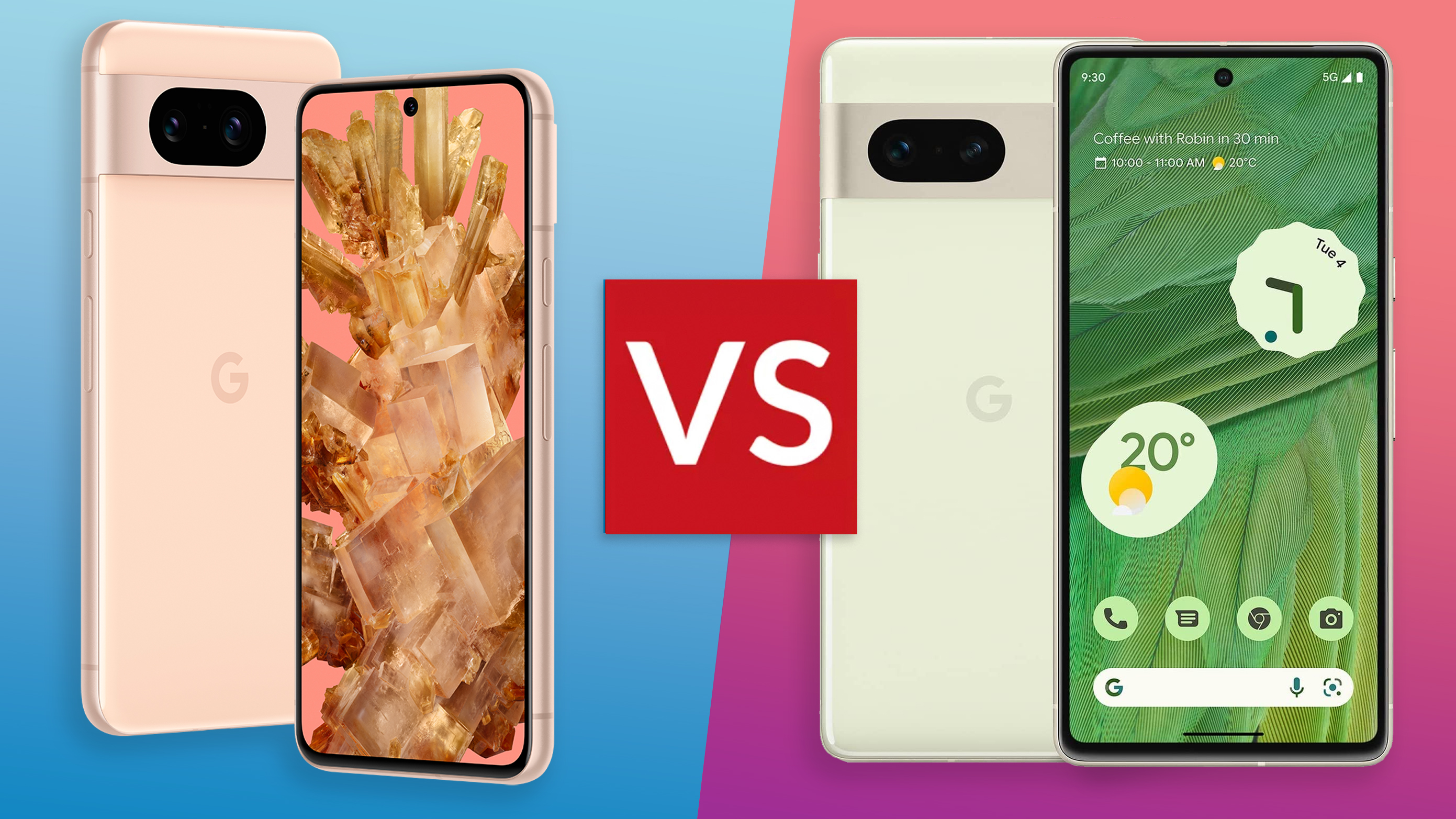
Google's hardware division has gone from strength to strength, especially when it comes to the best phones. That includes the best small phones, too, with last year's Pixel 7 still a strong contender for those who don't want the larger Pro model. But now there's a new entry in Google's baby flagship game: the Pixel 8, which arrives alongside its larger Pixel 8 Pro sibling.
When it comes to the best Android phones Google is a natural choice. After all, it is the creator and shepherd of the operating system – and with the Pixel 8 series there's a new promise for seven years of software and security updates and feature drops – which is why the Pixel 8 is such a strong contender. But just how different is it the Pixel 7 and why should you consider buying one?
What's new? In summary
- New: 7 years of Android updates
- New: 'Object Temperature' feature
But first, let me summarise what's new generation to generation. The Pixel 8 adds the more advanced Google Tensor G3 chip (the next step beyond the G2 before it); there are new colour variants; the main camera receives an upgrade; and the asking price is also higher.
There's even a new Object Temperature mode, which can tell you the temperature of a subject in an image. There's plenty more than just that, too, as I'll get to in the section-by-section breakdown below. A brighter screen, slightly faster wired charging, some new shooting modes, and more: I've included bullet-pointed breakouts so you can see at a glance where the key differences are.
Price & Availability
- Pixel 7 (at launch): £599 / $599 / €649
- Pixel 8 (at launch): £699 / $699 / €TBC
Just like the Pro model, one of the things I felt that really helped the Pixel 7 stand apart was a competitive price tag. The Pixel 8? It's gone up by a fair margin: an extra £100 in the UK and $100 in the USA (which is 16.7% more than the Pixel 7's launch price).
In context, however, that still makes sense in today's market: its nearest competitor (well, sort of) is the Nothing Phone 2, a device which I've really loved using. Still, now that the Pixel 7 is so much lower in price – £430 upon my last Amazon check – that is going to be a major consideration for some.
Colours & Design
- Pixel 7: Obsidian, Snow, Lemongrass
- Pixel 8: Obsidian, Hazel, Rose
When it comes to Google Pixel phones and colourways there's always a fancy shade and new name for each generation's release. I remember when the Pixel 7 was teased, Google did so with various crisp flavours (literally) that were actually handed out in small batches. That model was released in black (Obsidian), white (Snow) and a green-yellow (Lemongrass).
Sign up to the T3 newsletter for smarter living straight to your inbox
Get all the latest news, reviews, deals and buying guides on gorgeous tech, home and active products from the T3 experts
While the Pixel 8 didn't present itself with any snack-based forms for its colour options, the format this year is a mixture of familiar and new: there's black once again (Obsidian), grey-green (Hazel; which was a Pixel 7 Pro staple and is still a Pixel 8 Pro option), and a pink-gold (Rose). There's no blue option (Bay Blue), which is exclusive for the Pixel 8 Pro model.
Display
- Pixel 7: Flat 6.3in AMOLED, 90Hz, 1400 nits (peak)
- Pixel 8: Flat 6.2in AMOLED, 120Hz, 2000 nits (peak)
In terms of size the Pixel 8 is actually slightly smaller than the Pixel 7, owed to its reduction of screen bezel, but it still features a very similar display scale (albeit 6.2- rather than 6.3-inches).
While the Pixel 8's screen delivers the same resolution (1440x3120 pixels), it ups the ante when it comes to refresh rate (now 120Hz, up from 90Hz), and can deliver much greater brightness too (2000 nits peak, up from 1600).
Hardware
- Pixel 7: Google Tensor G2 processor, 8GB RAM
- Pixel 8: Google Tensor G3 processor, 8GB RAM
A new generation almost always comes with new hardware, which is exactly what the Pixel 8 offers: on board is Google's own silicon, the Tensor G3 – an update over the Pixel 7's Tensor G2 chip. Expect advances in compute and graphics, but also an even greater move towards artificial intelligence (AI) processes.
Unlike the Pixel 8 Pro, however, it appears that the Pixel 8 only features 8GB RAM, not 12GB. This limits some of the modes that are available, as the new Night Vision Video isn't available on the smaller handset – only the Pro.
Battery
- Pixel 7: 20W wired, 20W wireless, 4355mAh battery
- Pixel 8: 27W wired, 20W wireless, 4575mAh battery
The design tweaks mean a modicum of additional battery space in the Pixel 8 too, as you can see above. Although it's the faster charging that's likely to be more welcome – still nowhere near the speeds of the quickest systems out there though.
Cameras
- Pixel 7: Main (50MP, f/1.9), Wide (12MP, f/2.2)
- Pixel 8: Main (new 50MP, f/1.68), Wide (12MP, f/2.2)
One area where I really think the Pixel series excels is with its camera systems. The Pixel 7 doesn't have a zoom lens like the Pro and the Pixel 8 doesn't add one of those – instead it's a focus on enhancing the main camera with a new sensor and optics.
As you can see from the spec above, the Pixel 8 has a new main sensor with a wider aperture that's able to allow more light in – useful to enhance background blur, faster shutter, and better processing for improved quality.
It's a shame the Pixel 8 misses out on the Pixel 8 Pro's major new feature, Night Sight Video, as this live-action adaptation of the well-known stills mode sounds like a major appeal. Just not for users of the smaller handset.
Early conclusion
The Google Pixel 8 appears to be a moderate update over the Pixel 7 – it's the Pro 8 that receives far more tweaks and new features overall.
Still, the presence of a brighter screen, improved main camera, new colour options, and much longer support (to seven years of updates) will have major appeal.
It's just that with a higher asking price taking it into Nothing Phone (2) territory, the baby Google Pixel has got more legwork to do than before, even now that product is at its peak.

Mike is T3's Tech Editor. He's been writing about consumer technology for 15 years and his beat covers phones – of which he's seen hundreds of handsets over the years – laptops, gaming, TV & audio, and more. There's little consumer tech he's not had a hand at trying, and with extensive commissioning and editing experience, he knows the industry inside out. As the former Reviews Editor at Pocket-lint for 10 years where he furthered his knowledge and expertise, whilst writing about literally thousands of products, he's also provided work for publications such as Wired, The Guardian, Metro, and more.
-
 This is the sound of BMW's upcoming Neue Klasse EVs
This is the sound of BMW's upcoming Neue Klasse EVsHas BMW cracked the problem of making EVs sound fun with its next-gen soundscape for its Neue Klasse cars
By Alistair Charlton
-
 Build unshakeable core strength with a kettlebell and these three exercises
Build unshakeable core strength with a kettlebell and these three exercisesAdd this to the end of your workout to fire up your midsection muscles
By Bryony Firth-Bernard
-
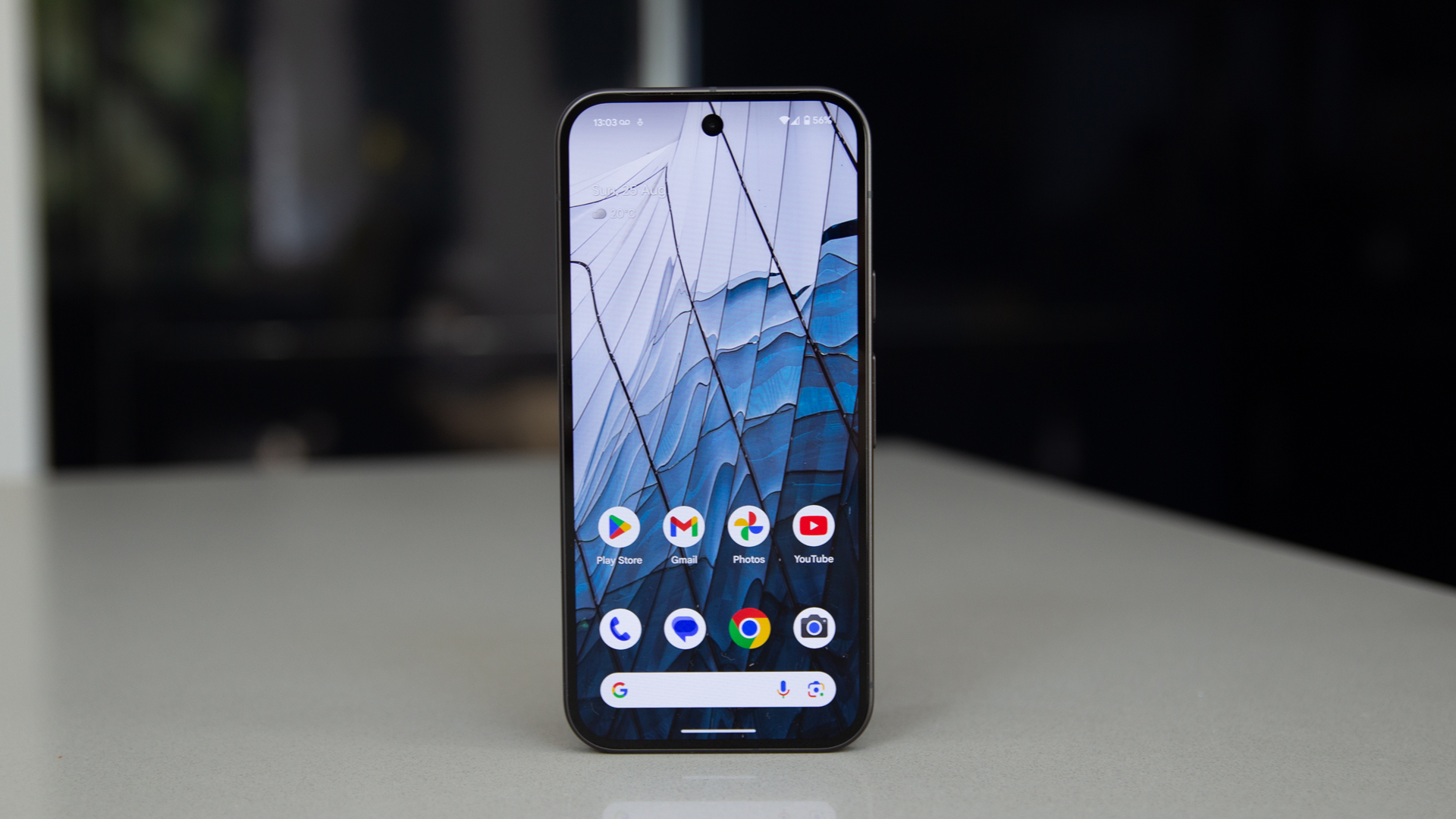 New Google Messages feature will make millions very happy
New Google Messages feature will make millions very happyIt's going to end a serious messaging blight
By Sam Cross
-
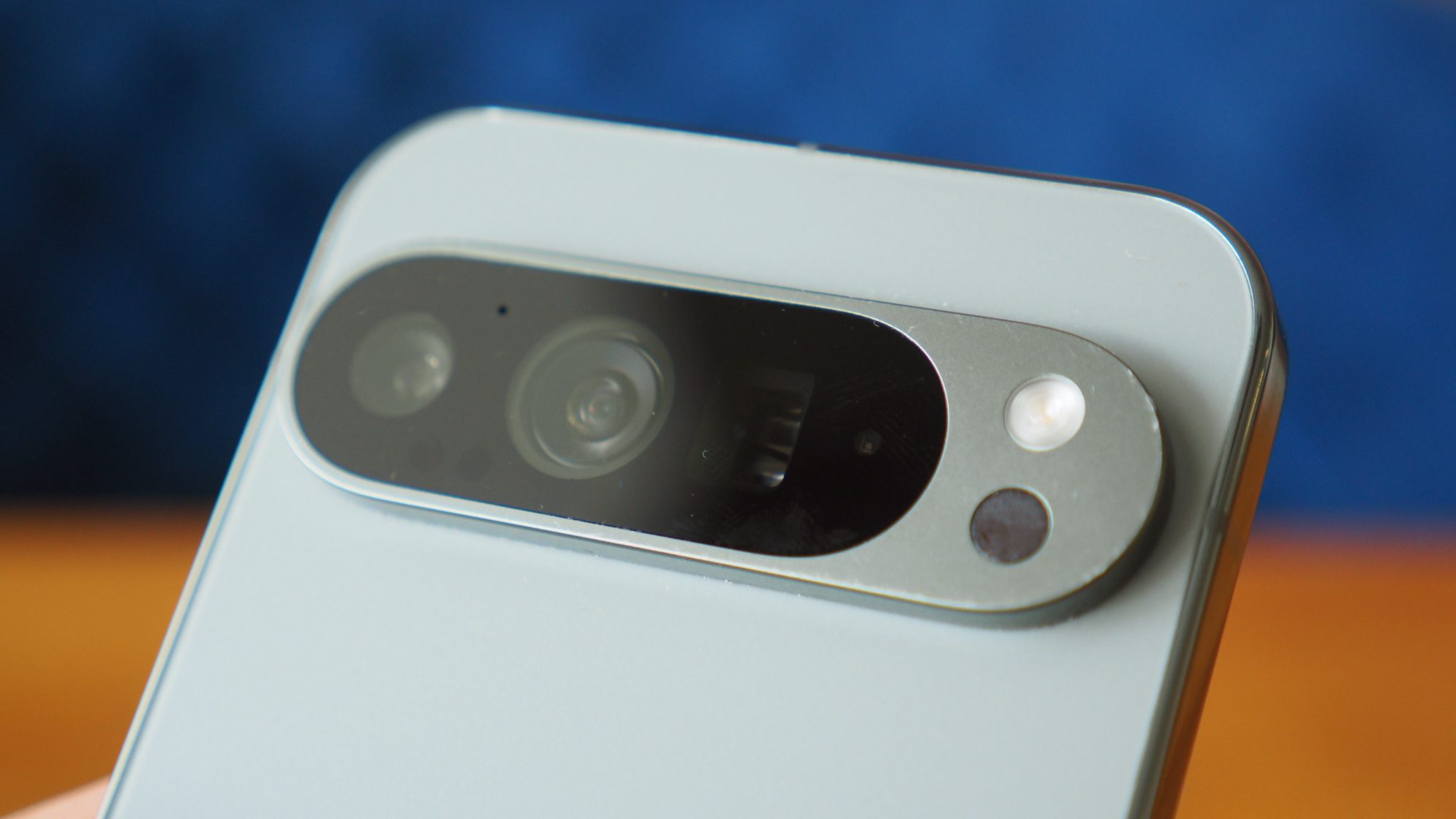 In an age of exciting upgrades, Google could downgrade the Pixel 10 instead
In an age of exciting upgrades, Google could downgrade the Pixel 10 insteadThere’s a change coming to the Pixel cameras and it could cause a stir
By Chris Hall
-
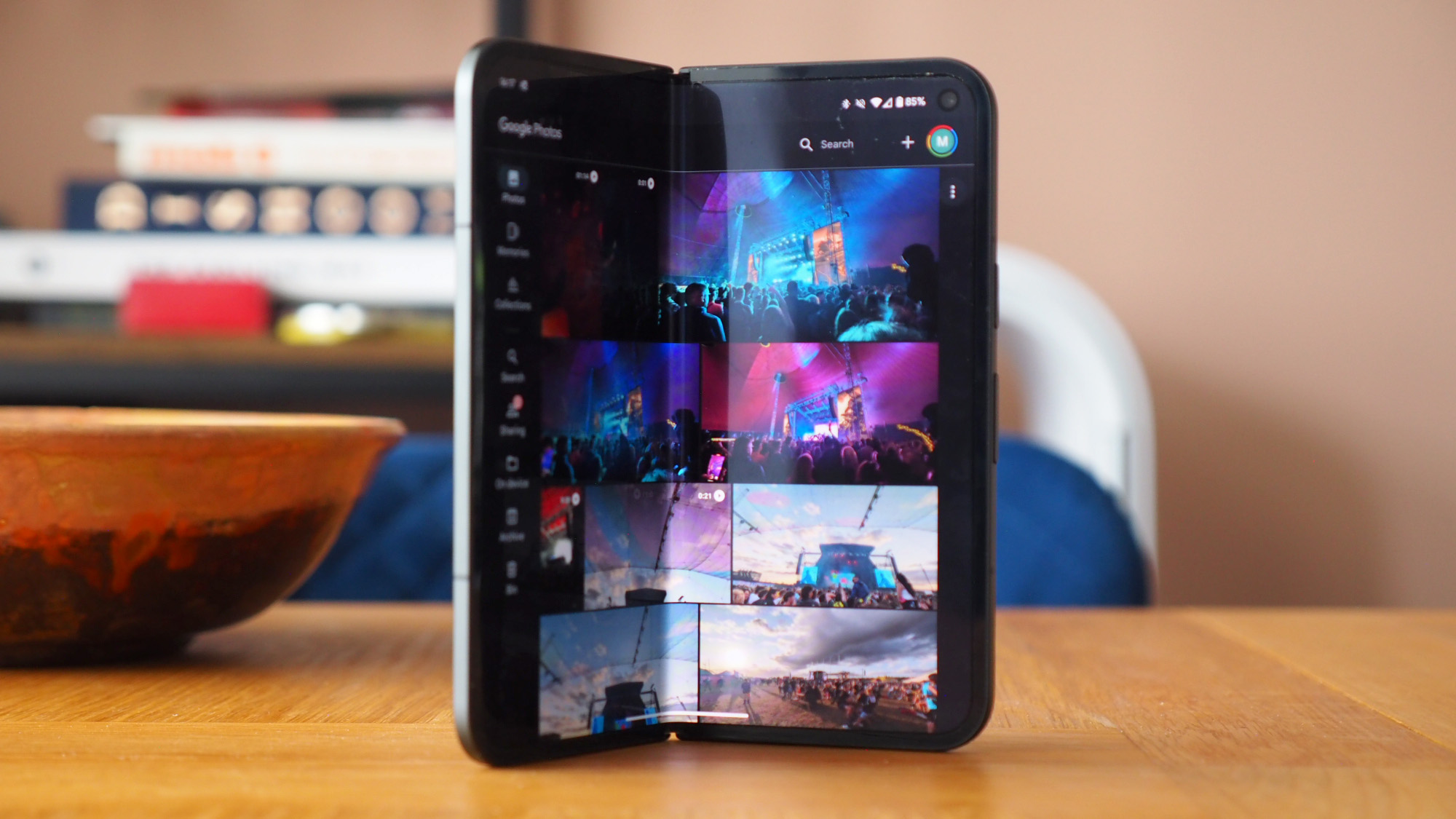 Google Pixel 10 Pro Fold renders show an early contender for foldable of the year
Google Pixel 10 Pro Fold renders show an early contender for foldable of the yearEven though it might not be the slimmest, it could be the sexiest
By Britta O'Boyle
-
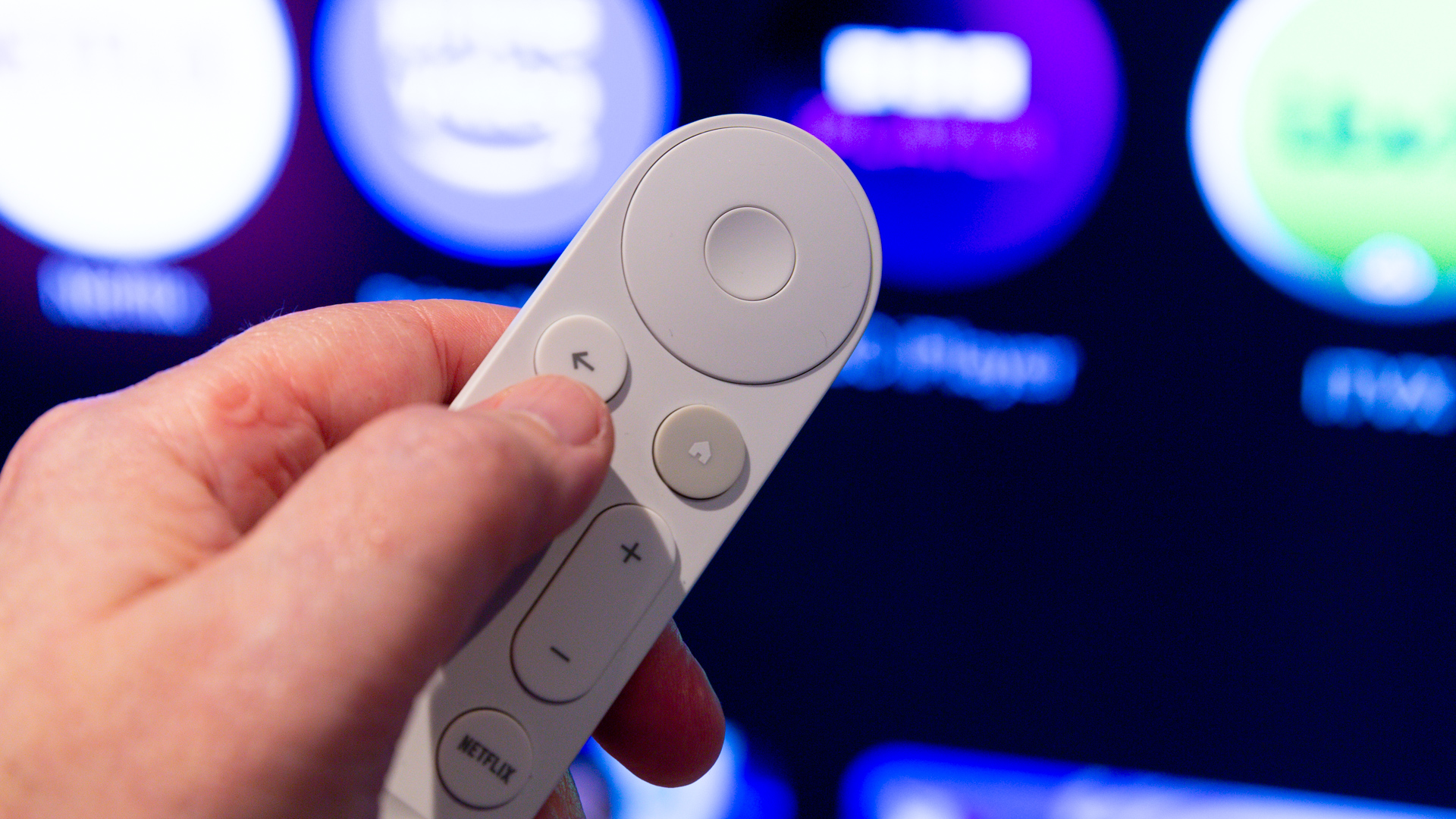 Google TV set for a shake up that might have you feeling blue
Google TV set for a shake up that might have you feeling blueA redesign is reportedly coming to Google TV, with a new colour scheme and features
By Rik Henderson
-
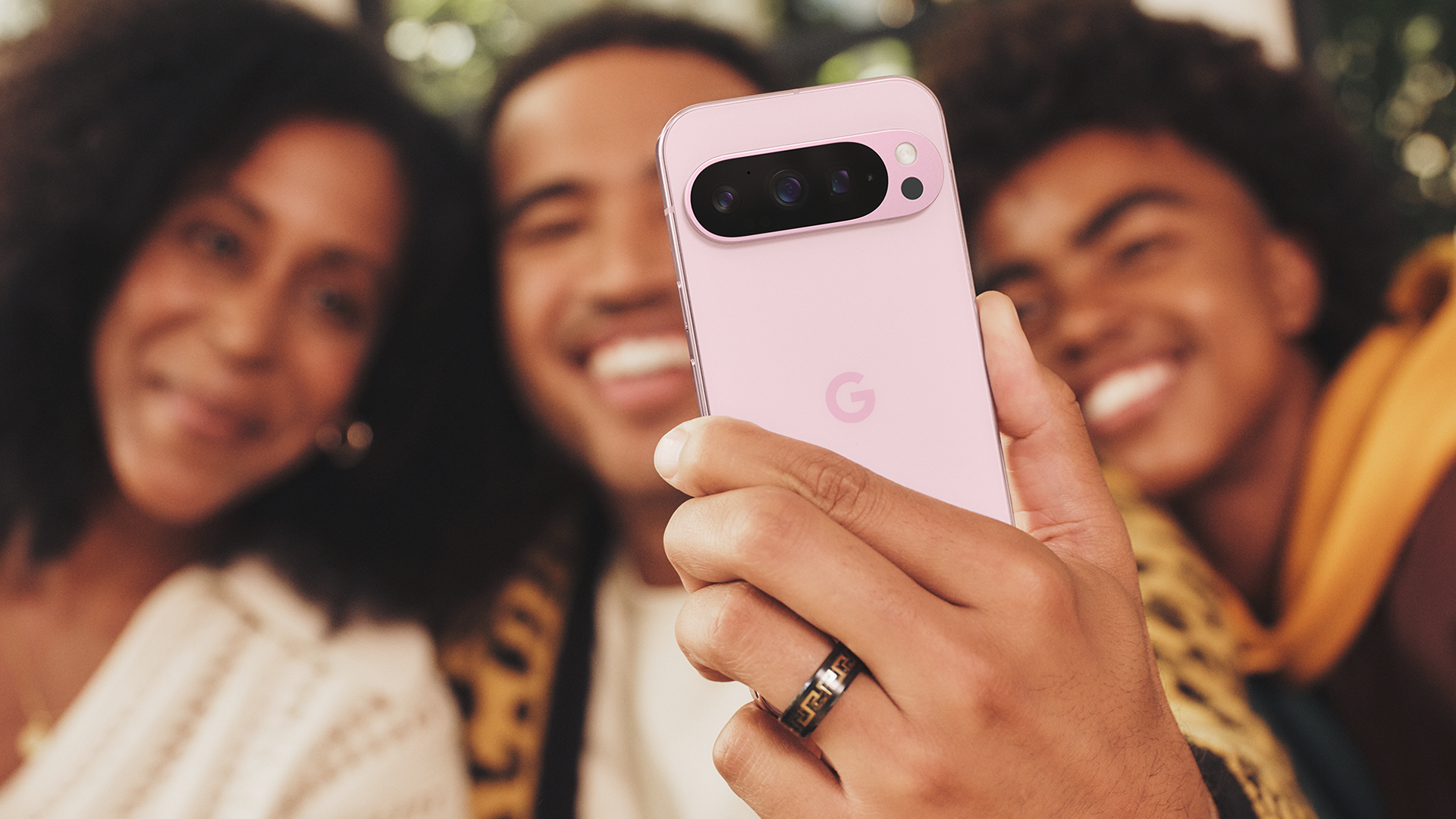 Android 16 to come with a significant security upgrade for Pixel phones
Android 16 to come with a significant security upgrade for Pixel phonesIt’s going to be easier to unlock your Pixel phone in the future
By Chris Hall
-
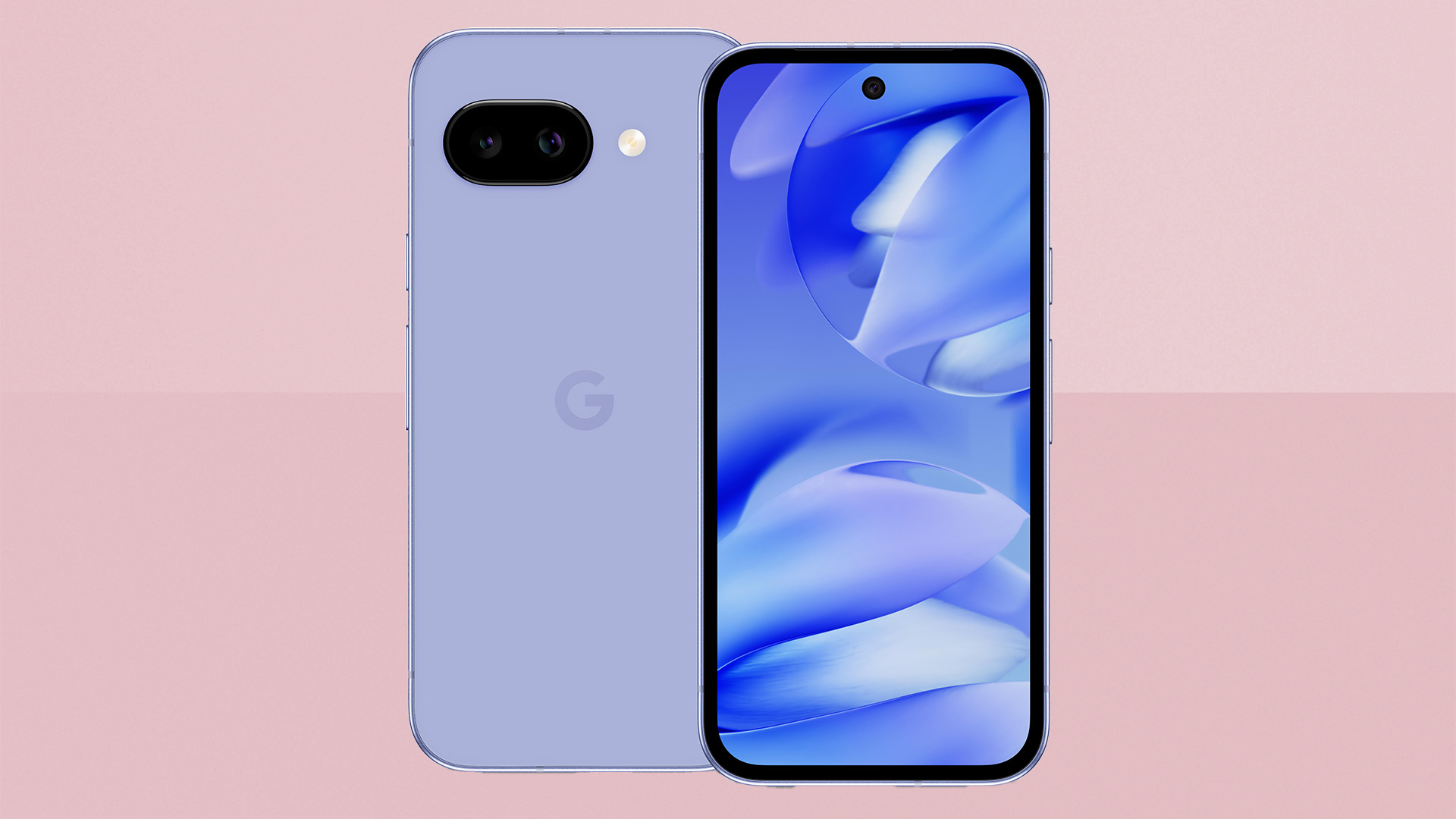 Google Pixel 9a delayed, but for good reason
Google Pixel 9a delayed, but for good reasonGoogle’s latest affordable phone has been announced, but you can’t actually buy it yet
By Chris Hall
-
 Google's Pixel 9a does one simple thing that could tempt me away from iPhones after a decade
Google's Pixel 9a does one simple thing that could tempt me away from iPhones after a decadeGoogle's played a blinder here
By Max Freeman-Mills
-
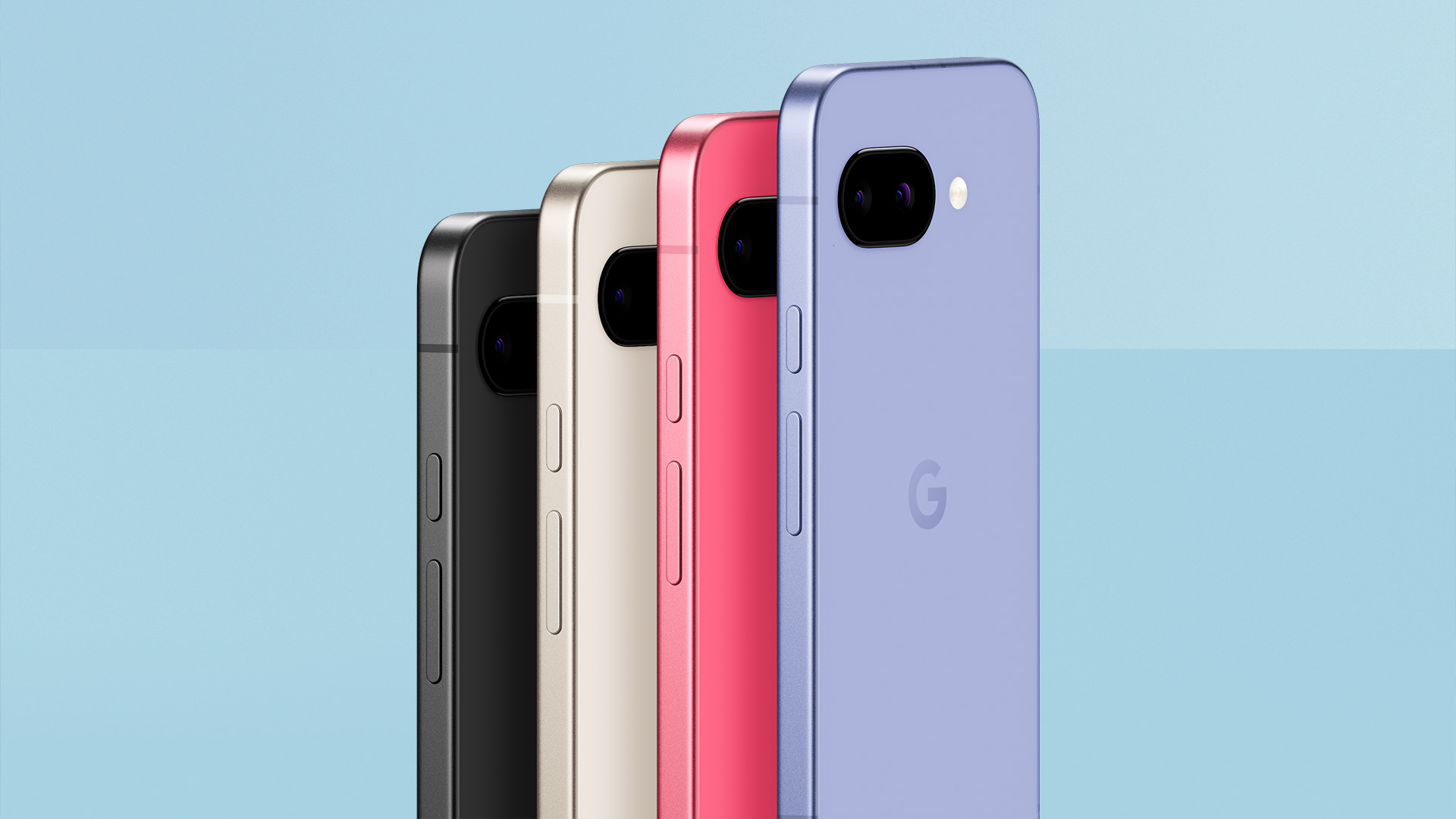 Google's new phone makes one huge, unexpected change
Google's new phone makes one huge, unexpected changeThe Pixel 9a is flat – that's big!
By Max Freeman-Mills